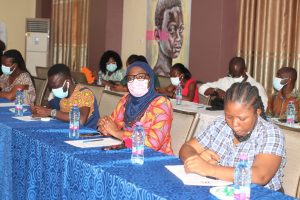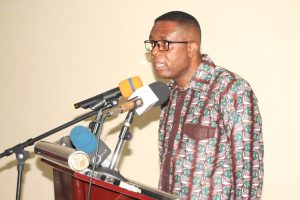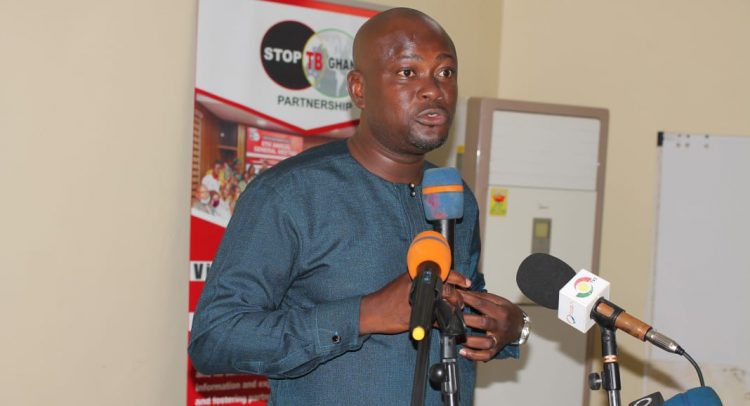Mr. David Kwesi Afreh
The National Tuberculosis Control Programme (NTCP), an advocacy group, STOP TB Partnership have called for an increase in funding allocated to TB interventions in the country.
According to the group, the country needs $25.6 million to meet the 2022 United Nations (UN) High Level Meeting (UNHLM) targets on Tuberculosis (TB).
Head of the NTCP, Dr. Yaw Adusi-Poku, speaking at a media workshop in Accra, said although the country is a signatory to the UN TB declaration, the lack of political will, funding and requisite logistics to tackle the disease has slowed progress on key indicators like case detection, diagnosis, contact tracing and preventive therapy.
“Case detection dropped from 14,749 in 2019 to 12,602 in 2020 and about 6,604 so far recorded this year,” he said.

Media participants at the workshop
He further noted that there are only 133 Gene Xpert machines in 50 per cent of health facilities in the country adding that the number is woefully inadequate to screen people in all 261 districts.
“The country would need 138 more Gene Xpert machines costing at least $17,000 each, and X-ray machines to particularly test children of the disease,” he said.
Board Chairman of the Stop TB Partnership, David Kwesi Afreh, said TB cases were being overshowded by Covid-19 and, therefore, making it impossible to identify and treat cases.

Dr. Yaw Adusi-Poku
He said the current situation where 192 out of every 100,000 Ghanaians had TB was worrying urging stakeholders to turn attention to the infectious disease.
Ghana Journalists Association (GJA) Vice-President, Mrs Linda Asante Agyei, urged participants to use their various platforms to create awareness about tuberculosis (TB).
She said although TB could be treated, many people die from the disease because of ignorance.
“As journalists, we have a responsibility to society to educate people about TB and let them know that it is not a disease that cannot be treated. There is medication and help out there and we must drum it home always,” she said.
By Jamila Akweley Okertchiri

